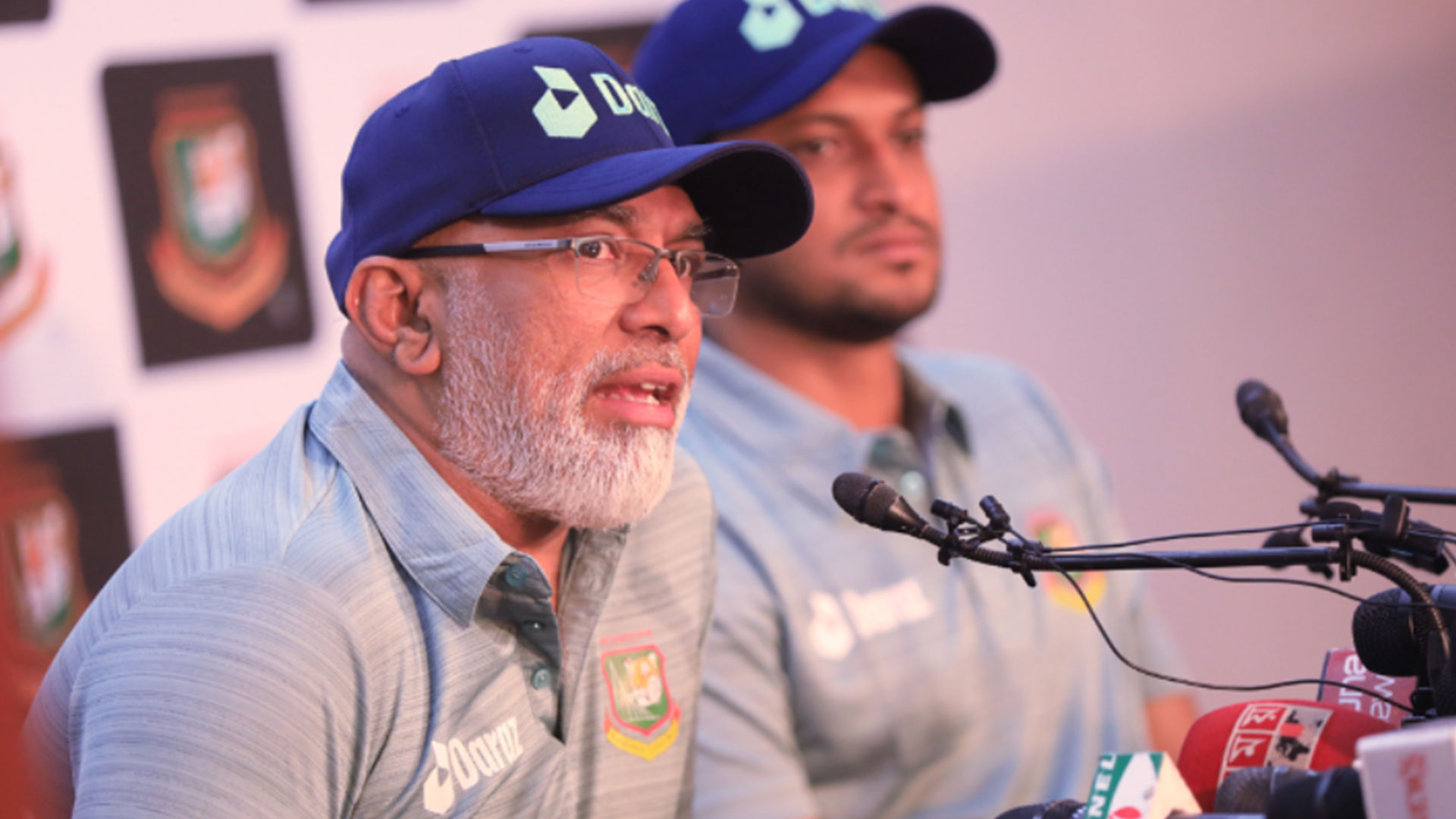Chandika Hathurusunghe, the head coach of the Bangladeshi team, expressed that the team’s foremost goal is to secure qualification for the subsequent stage of the competition before they depart for Sri Lanka. This task was completed before their departure on the trip.
In addition to Bangladesh, the Asia Cup will include the participation of several other countries, including India, Pakistan, Sri Lanka, Afghanistan, and Nepal.
On August 31, Bangladesh’s cricket team will play their first match against Sri Lanka. They are in Group B, along with Afghanistan, which is the third and final team in the group. Despite already having a match scheduled in Sri Lanka against their opponent, Bangladesh will also travel to Pakistan for a match against Afghanistan on September 3rd. This upcoming match will take place in Pakistan.
Bangladesh is set to embark on a three-day journey to play two 50-over cricket matches in two different countries. Coach Chandika expressed concerns about the demanding schedule, noting that it poses a unique challenge as they do not typically travel between countries during tournaments. However, both teams are facing the same situation, and Bangladesh is looking forward to the upcoming challenge.
In the past, Bangladesh has faced tough competition from Sri Lanka and Afghanistan in the Asia Cup. This year, there is a renewed focus on evaluating Bangladesh’s performance in the 50-over format. Both Sri Lanka and Afghanistan have displayed impressive performances in previous editions of the Asia Cup, and they pose a significant challenge. At a recent press conference in Dhaka, Chandika expressed confidence in Bangladesh’s recent success against these teams.
Before leaving for Sri Lanka, the Bangladesh team underwent a thorough training camp that included a detailed physical evaluation and consultation with a healthcare professional. Chandika expressed her happiness with the team’s preparation for the Asia Cup, mentioning that she feels very satisfied.
The cricket community in Bangladesh has been engaged in deliberations on the selection of the seventh batsman in the batting lineup. Chandika expressed that he is not designating any individual to undertake that task; instead, the determination would be contingent upon the prevailing circumstances and the opposing forces.
During the concluding stages of the game, bowlers often need to bat, and it appears that they have made progress in their batting skills according to the coach. Taskin Ahmed, Hasan Mahmud, and Mustafizur Rahman have all shown improvement, which is seen as a positive development by the observer.
Chandika underscored that their foremost objective is to secure qualification for the Super Four. We are engaged in a competitive encounter with the Sri Lankan cricket team on their home turf, where they have established a reputation for achieving notable success. In Pakistan, a cricket match is scheduled between the national team and Afghanistan, a squad that has just emerged victorious in a series held in Pakistan. As a result, there exist significant obstacles; nonetheless, we are adequately equipped to confront them.
To achieve success, Bangladesh will need to compensate for the absence of Ebadot Hossain, who serves as their fastest-pace bowler. The trainer acknowledged that their nonattendance of Ebadot was a “substantial detriment” and emphasised the difficulty in locating a suitable substitute.
Ebadot sustained a lower limb injury during the One-Day International series contested against Afghanistan. Despite his initial inclusion in the squad, the team’s physiotherapist subsequently recommended that he be granted extended recovery time to address his injury. Consequently, Tanzim Hasan Sakib, an uncapped pacer, was chosen as his replacement.

